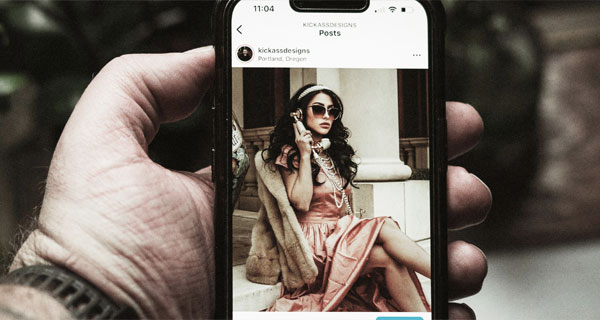
Used under a Creative Commons Licence
From Catwalk to Courtroom: Fashion Law & Social Media Liability
If you’ve ever hit “post” on social media in the heat of the moment, you’ll understand the cautionary tale that unfolded between Seafolly and White Sands. It’s the classic designer’s nightmare: you see something in print, it looks suspiciously like your work, and your fingers itch to tell the world.
That’s exactly what happened when Leah Madden, the designer behind White Sands, saw a photo spread of Seafolly swimwear in a magazine. Convinced her collection had been copied, she went to Facebook and to her keyboard, accusing Seafolly of ripping her off — “line-line ripoff,” “dummy buyer,” the works.
She even created a side-by-side photo album and shot it off to the press. And that’s when things went sideways.
Now Seafolly didn’t stay quiet. They hit back — hard. Press releases, denials, and finally, a lawsuit. The case went all the way to the Federal Court: Seafolly Pty Ltd v Madden [2012] FCA 1346.
The judge had to unravel whether Seafolly had in fact copied White Sands (spoiler: they hadn’t) and whether Madden’s Facebook posts were just opinion or misleading fact. The Court decided that her posts weren’t just idle musings — they looked and read like statements of fact. And when you throw shade on a competitor in trade or commerce, the law doesn’t let you off lightly.
Madden was found liable for misleading and deceptive conduct under the Australian Consumer Law, ordered to pay damages, and restrained from making further statements. Some of Seafolly’s other claims (like copyright and injurious falsehood) didn’t stick, but the damage to Madden’s pocket — and reputation — was done.
Why This Still Matters for Creatives in 2025
Fast-forward to today, and the story feels eerily modern. The speed of social media, the thrill of calling out “copycats,” and the blurred line between opinion and fact hasn’t gone away. If anything, it’s accelerated.
Whether you’re a surface designer, illustrator, pattern maker, or small brand owner, your Instagram, TikTok or LinkedIn is more than just a soapbox — it’s a legal minefield. Posts count as advertising. Comments can be defamatory. Reposts can breach copyright.
At DesignWise Legal
The Social Media Policy Template — tailored for creatives, freelancers, and small brands who want clarity on what they (and their staff, collaborators or interns) can and can’t post.
The Pattern Library Terms Template — coming soon, to help you protect your designs when licensing them or collaborating with others.
Think of these as “plug-and-play” templates with the gaps already mapped out for you. You just fill in your studio name, your boundaries, and your rules of engagement. And because we know one size never really fits all, they’re drafted so you can tweak them with a lawyer’s help if needed.
Other Social Media Risks to Keep in Mind
The Seafolly story shows how quickly things can escalate when posts are reckless. But it’s not just fashion — the risks are everywhere. Some quick reminders for 2025:
- Truth in advertising: If you promote your work, collaborations or giveaways online, it’s caught by consumer law. Be honest and transparent.
- Defamation: Posts about competitors, clients, or collaborators can land you in court if they harm reputations.
- Copyright: Sharing an image or video without permission can breach IP rights, even if you “just found it online.”
- Privacy: Collecting emails or DMs through social campaigns? Privacy law applies.
- The moral: social media is powerful, but also risky. Policies set boundaries and protect your brand before the storm hits.
Why We’re Doing This
We’ve spent years advising clients across the creative industries — from swimwear labels to illustrators, from food packaging to textile designers — and we kept seeing the same question: “Do you have a template for this?”
So yes, we’re finally making one. Our new Social Media Policy Template is launching soon. It’s designed for creative businesses, surface designers, and indie labels who want to feel confident online without having to reinvent the legal wheel.
Because the truth is, everyone thinks they won’t be the next Seafolly case … until they are.
Further reading
Seafolly Pty Ltd v Madden [2012] FCA 1346
https://jade.io/j/?a=outline&id=287073
Social media promotions and the ACCC
https://www.accc.gov.au/business/advertising-and-promotions/social-media-promotions.
Coming Soon: Social Media Policy Template
We’ve had so much demand from designers, agencies and small brands that we’re creating a ready-to-use Social Media Policy Template.
Inside the template you’ll get:
- Clear rules for what can (and can’t) be posted on brand accounts
- Guidance for handling negative comments and complaints
- A framework for using images, music, and designs online without copyright slip-ups
- Easy-to-follow sections for employees, collaborators, or freelancers
Please note the above article is general in nature and does not constitute legal advice.
Please email us info@iplegal.com.au if you need legal advice about your brand or another legal matter in this area generally.

